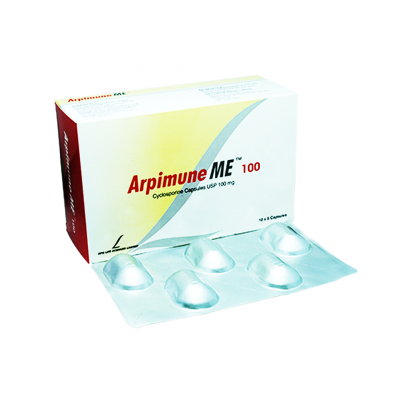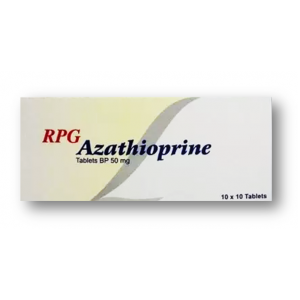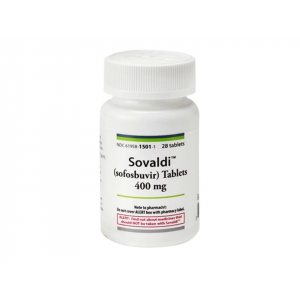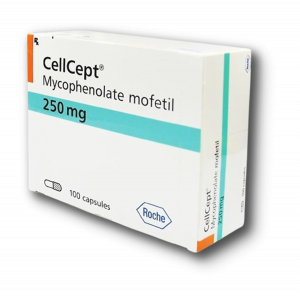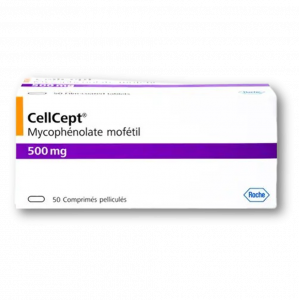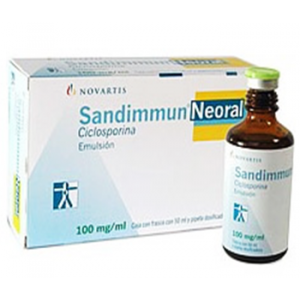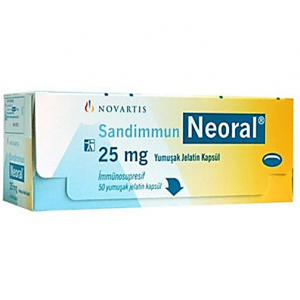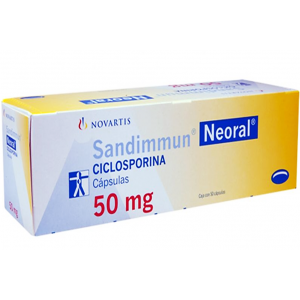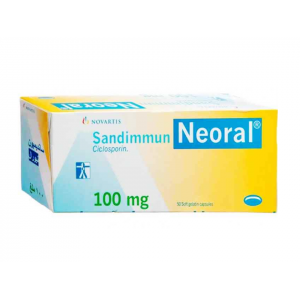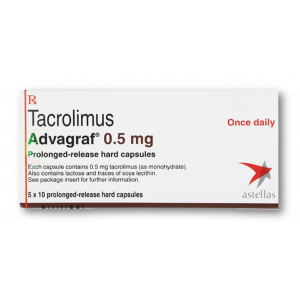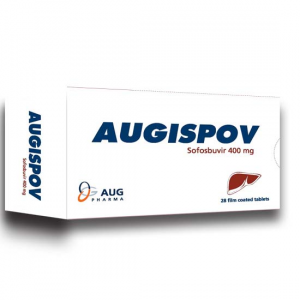- Anti-hestaminic & Respiratory Drugs (20)
- Anti-inflammatory Drugs (197) +-
- Baby & Mom (1346) +-
- Baby & Mom > Bath, skin & Hair > Skin Care > wibes (52)
- Beauty (3129) +-
- Beauty > Skin Care > whitening (309)
- Chemotherapy & Immune Response (885) +-
- Chemotherapy & Immune Response > ANTI-FUNGAL (11)
- Chemotherapy & Immune Response > Chemotherapeutic Agents > Hormone Antagonists >Enzyme Inhibitors (290)
- CIRCULATORY DISTURBANCE AGENTS (24)
- Diet & Fitness Products (284) +-
- DRUG AFFECTING CENTRAL NERVOUS SYSTEM (191)
- HEMATOLOGY (39)
-
Medical Supplies (506)
+-
- Chemicals & Disinfectants (19)
- Dental Supplies (31)
- Devices & Instruments (11)
- Diabetic Supplies (121)
- General Medical Supplies (21)
- I.V & Medical Solution (0)
- Intensive Care Unit & Anesthesia Supplies (0)
- KIDNEY UNIT SUPPLIES (21)
- Lab Supplies (3)
- Miscellaneous (21)
- Neonatal Unit Supplies (0)
- Operation Room Supplies (2)
- Sanitary (5)
- Sterilization Supplies (1)
- Surgical Sutures (4)
- Syringes (3)
-
Medicines & Health (2727)
+-
- Allergy & Sinus (97)
- Children's Health Care (54)
- Cough, Cold & Flu (283)
- Digestive Health & Nausea (231)
- Ear, Nose & Throat Care (181)
- Eye Care (124)
- Feminine Care (323)
- Foot Care (12)
- Orthopaedic Appliances (1)
- Pain Relief & Management (244)
- Pill Organizer (2)
- Skin Treatments (863)
- Sleep & Snoring Aids (2)
- Support & Braces (8)
- Medicines & health > Gout releif (42)
- Natural & Organic Products (81) +-
- OTC > Analgesics > Anti-inflammatory Drugs (44)
-
Personal Care (3363)
+-
- Bath & Body (273)
- Deodorant & Anti-perspirants (191)
- Ear, Nose & Throat Care (177)
- Eye Care (131)
- Feminine Care (372)
- Foot Care (20)
- Hair Care (511)
- Home Tests & Monitorings (14)
- Incontinence (7)
- Lip Care (26)
- Massage & Relaxation (17)
- Natural & Organic Personal Care (7)
- Oral Care (91)
- Pregnancy & Fertility (64)
- Shaving & Grooming (75)
- Sun Care (80)
-
Prescription Drugs (2935)
+-
- Analgesics (184)
- Cardiovascular System (377)
- Drugs Affecting Musculoskeletal System (65)
- Drugs Used In Infections (56)
- Ear & Nose Drugs (2)
- Endocrine System (177)
- Gastrointestinal Tract (243)
- Gastrointestinal Tract > Hepatology > Liver treatment (60)
- GYNECOLOGY (2)
- Miscellaneous (11)
- NEPHROLOGY > URINARY SYSTEM > RENAL DISORDERS > URINARY TRACT DISORDERS (47)
- NEUROLOGY (228)
- Nutrients & Blood Electrolytes (2)
- Respiratory System (154)
- SKIN > NAILS > HAIR > TOPICAL PREPARATIONS (115)
- Vaccines (1)
- Prescription drugs > Cardiovascular system > Anti-hypertension drugs (242)
- Sexual Wellness (304) +-
- Vitamins & Minerals Supplements (1230) +-
Ex Tax: 865EGP
Example
You can return the product within 14 days of purchase.
ReturnsYou can return the product within 14 days of purchase.

Cyclosporine (Oral Route)
US Brand Name
Gengraf
Neoral
SandIMMUNE
Descriptions
Cyclosporine is used in combination with other medicines (eg, azathioprine, steroid medicines) to prevent the body from rejecting a transplanted organ (eg, kidney, liver, or heart). It belongs to a group of medicines known as immunosuppressive agents. When a patient receives an organ transplant, the body's white blood cells will try to get rid of (reject) the transplanted organ. Cyclosporine works by suppressing the immune system to prevent the white blood cells from trying to get rid of the transplanted organ.
Cyclosporine is also used to treat severe active rheumatoid arthritis in patients who have taken other medicines (eg, methotrexate) that did not work well. It is also used to treat severe plaque psoriasis, which is a skin disease with red patches and white scales that do not go away. It is given to patients who have received other types of treatment (eg, PUVA, retinoids, methotrexate) that did not work well.
This medicine is available only with your doctor's prescription.
Capsule, Liquid Filled
Solution
Capsule
Before Using
In deciding to use a medicine, the risks of taking the medicine must be weighed against the good it will do. This is a decision you and your doctor will make. For this medicine, the following should be considered:
Allergies
Tell your doctor if you have ever had any unusual or allergic reaction to this medicine or any other medicines. Also tell your health care professional if you have any other types of allergies, such as to foods, dyes, preservatives, or animals. For non-prescription products, read the label or package ingredients carefully.
Pediatric
Appropriate studies on the relationship of age to the effects of cyclosporine have not been performed in children receiving organ transplants. However, no pediatric-specific problems have been documented to date.
Appropriate studies have not been performed on the relationship of age to the effects of cyclosporine in children with rheumatoid arthritis or psoriasis. Safety and efficacy have not been established.
Geriatric
Appropriate studies performed to date have not demonstrated geriatric-specific problems that would limit the usefulness of cyclosporine in the elderly. However, elderly patients are more likely to have high blood pressure or age-related kidney, liver, or heart problems, which may require caution and an adjustment in the dose for patients receiving cyclosporine.
Breastfeeding
There are no adequate studies in women for determining infant risk when using this medication during breastfeeding. Weigh the potential benefits against the potential risks before taking this medication while breastfeeding.
Drug Interactions
Although certain medicines should not be used together at all, in other cases two different medicines may be used together even if an interaction might occur. In these cases, your doctor may want to change the dose, or other precautions may be necessary. When you are taking this medicine, it is especially important that your healthcare professional know if you are taking any of the medicines listed below. The following interactions have been selected on the basis of their potential significance and are not necessarily all-inclusive.
Using this medicine with any of the following medicines is not recommended. Your doctor may decide not to treat you with this medication or change some of the other medicines you take.
Bosentan
Colchicine
Dronedarone
Elagolix
Eliglustat
Ezetimibe
Grazoprevir
Lercanidipine
Levoketoconazole
Mifepristone
Pitavastatin
Simvastatin
Sitaxsentan
Using this medicine with any of the following medicines is usually not recommended, but may be required in some cases. If both medicines are prescribed together, your doctor may change the dose or how often you use one or both of the medicines.
Abametapir
Abrocitinib
Acalabrutinib
Aceclofenac
Acemetacin
Adagrasib
Adalimumab
Adenovirus Vaccine, Live
Afatinib
Alefacept
Alfalfa
Alfentanil
Aliskiren
Alogliptin
Alpelisib
Alprazolam
Ambrisentan
Amifampridine
Amiloride
Amlodipine
Amphotericin B
Amprenavir
Amtolmetin Guacil
Apalutamide
Apazone
Apixaban
Aprepitant
Asciminib
Aspirin
Asunaprevir
Atogepant
Atorvastatin
Avacopan
Avapritinib
Azilsartan
Azilsartan Medoxomil
Azithromycin
Bacillus of Calmette and Guerin Vaccine, Live
Belumosudil
Belzutifan
Benazepril
Benzhydrocodone
Berotralstat
Betrixaban
Bezafibrate
Bimekizumab-bkzx
Black Cohosh
Boceprevir
Bosutinib
Brigatinib
Bromfenac
Bromocriptine
Budesonide
Bufexamac
Buprenorphine
Bupropion
Canagliflozin
Candesartan
Canrenoate
Canrenone
Capivasertib
Capmatinib
Captopril
Carbamazepine
Caspofungin
Celecoxib
Cenobamate
Ceritinib
Cerivastatin
Cholera Vaccine, Live
Cholic Acid
Choline Salicylate
Cimetidine
Ciprofibrate
Ciprofloxacin
Clarithromycin
Clofazimine
Clofibrate
Clonixin
Clopidogrel
Clozapine
Cobicistat
Codeine
Conivaptan
Crizotinib
Cyclophosphamide
Dabigatran Etexilate
Dabrafenib
Daclatasvir
Danicopan
Daridorexant
Darunavir
Dasabuvir
Deflazacort
Delavirdine
Dengue Tetravalent Vaccine, Live
Desogestrel
Dexamethasone
Dexibuprofen
Dexketoprofen
Diclofenac
Dienogest
Diflunisal
Digoxin
Dihydrocodeine
Dihydroergotamine
Diltiazem
Dipyrone
Domperidone
Donepezil
Doxorubicin
Doxorubicin Hydrochloride Liposome
Drospirenone
Droxicam
Duvelisib
Ebola Zaire Vaccine, Live
Edoxaban
Efavirenz
Elacestrant
Elexacaftor
Eluxadoline
Enalaprilat
Enalapril Maleate
Enasidenib
Encorafenib
Entrectinib
Enzalutamide
Eplerenone
Eprosartan
Erdafitinib
Erythromycin
Eslicarbazepine Acetate
Estetrol
Estradiol
Ethinyl Estradiol
Ethynodiol
Etodolac
Etofenamate
Etoposide
Etoricoxib
Etravirine
Everolimus
Fedratinib
Felbinac
Felodipine
Fenofibrate
Fenofibric Acid
Fenoprofen
Fentanyl
Fepradinol
Feprazone
Fexinidazole
Finerenone
Flibanserin
Floctafenine
Fluconazole
Flufenamic Acid
Flurbiprofen
Fluvastatin
Fluvoxamine
Fosamprenavir
Fosaprepitant
Foscarnet
Fosinopril
Fosnetupitant
Fosphenytoin
Fostamatinib
Gemfibrozil
Gentamicin
Gepirone
Gestodene
Gilteritinib
Givinostat
Glecaprevir
Hydrocodone
Hydroxychloroquine
Ibrexafungerp
Ibrutinib
Ibuprofen
Idelalisib
Imatinib
Indinavir
Indomethacin
Infigratinib
Infliximab
Influenza Virus Vaccine, Live
Irbesartan
Isavuconazole
Isavuconazonium Sulfate
Istradefylline
Itraconazole
Ivacaftor
Ivosidenib
Ketoconazole
Ketoprofen
Ketorolac
Lanreotide
Lapatinib
Larotrectinib
Lasmiditan
Lefamulin
Lemborexant
Lenacapavir
Lesinurad
Letermovir
Levamlodipine
Levonorgestrel
Lisinopril
Lonafarnib
Lorlatinib
Lornoxicam
Losartan
Lovastatin
Loxoprofen
Lumacaftor
Lumateperone
Lumiracoxib
Lurbinectedin
Mavacamten
Mavorixafor
Measles Virus Vaccine, Live
Meclofenamate
Mefenamic Acid
Meloxicam
Melphalan
Meperidine
Mestranol
Methadone
Methotrexate
Methylprednisolone
Metoclopramide
Mibefradil
Mirabegron
Mitapivat
Mitotane
Mobocertinib
Modafinil
Moexipril
Momelotinib
Morniflumate
Morphine
Morphine Sulfate Liposome
Mumps Virus Vaccine, Live
Mycophenolate Mofetil
Mycophenolic Acid
Nabumetone
Nafcillin
Naproxen
Nefazodone
Nelfinavir
Nepafenac
Neratinib
Netupitant
Nevirapine
Nicardipine
Nifedipine
Niflumic Acid
Nimesulide
Nimesulide Beta Cyclodextrin
Nirmatrelvir
Nirogacestat
Nomegestrol
Norethindrone
Norgestimate
Norgestrel
Obeticholic Acid
Octreotide
Olaparib
Olmesartan
Omaveloxolone
Ombitasvir
Orlistat
Osimertinib
Oxaprozin
Oxcarbazepine
Oxycodone
Oxyphenbutazone
Ozanimod
Pacritinib
Palbociclib
Palovarotene
Parecoxib
Paritaprevir
Paroxetine
Pazopanib
Pemigatinib
Pentazocine
Perindopril
Pexidartinib
Phenobarbital
Phenylbutazone
Phenytoin
Pibrentasvir
Piketoprofen
Piperaquine
Piroxicam
Pirtobrutinib
Pixantrone
Poliovirus Vaccine, Live
Posaconazole
Potassium Phosphate
Pralsetinib
Pranoprofen
Pravastatin
Primidone
Proglumetacin
Propafenone
Propyphenazone
Proquazone
Pyrazinamide
Quinapril
Quinidine
Quinine
Ramipril
Ranitidine
Ranolazine
Red Yeast Rice
Relugolix
Repotrectinib
Resmetirom
Revefenacin
Ribociclib
Rifabutin
Rifampin
Rifapentine
Rimegepant
Ritlecitinib
Ritonavir
Rivaroxaban
Rofecoxib
Roflumilast
Rolapitant
Rosuvastatin
Rotavirus Vaccine, Live
Rubella Virus Vaccine, Live
Rucaparib
Salicylic Acid
Salsalate
Saquinavir
Sarecycline
Schisandra sphenanthera
Selpercatinib
Selumetinib
Silodosin
Simeprevir
Sirolimus
Sirolimus Protein-Bound
Smallpox Monkeypox Vaccine, Live Non-Replicating
Smallpox Vaccine
Sodium Salicylate
Sofosbuvir
Sonidegib
Sotorasib
Sparsentan
Spirapril
Spironolactone
St John's Wort
Sufentanil
Sulfamethoxazole
Sulfinpyrazone
Sulindac
Suvorexant
Tacrolimus
Talazoparib
Taurursodiol
Tazemetostat
Telaprevir
Telithromycin
Telmisartan
Telotristat Ethyl
Tenofovir Alafenamide
Tenoxicam
Tepotinib
Terbinafine
Tezacaftor
Thioridazine
Tiaprofenic Acid
Ticagrelor
Ticlopidine
Tobramycin
Tocilizumab
Tofacitinib
Tolfenamic Acid
Tolmetin
Tolvaptan
Topotecan
Tovorafenib
Tramadol
Trandolapril
Triamterene
Trimethoprim
Trofinetide
Troleandomycin
Tucatinib
Typhoid Vaccine, Live
Ubrogepant
Ustekinumab
Valdecoxib
Valsartan
Vancomycin
Vandetanib
Varicella Virus Vaccine, Live
Velpatasvir
Vemurafenib
Venetoclax
Venlafaxine
Verapamil
Vibegron
Vilazodone
Vincristine
Vincristine Sulfate Liposome
Voclosporin
Vonoprazan
Vorapaxar
Voriconazole
Voxelotor
Voxilaprevir
Yellow Fever Vaccine
Zanubrutinib
Zavegepant
Zolpidem
Zoster Vaccine, Live
Using this medicine with any of the following medicines may cause an increased risk of certain side effects, but using both drugs may be the best treatment for you. If both medicines are prescribed together, your doctor may change the dose or how often you use one or both of the medicines.
Acetazolamide
Allopurinol
Amiodarone
Amphotericin B Cholesteryl Sulfate Complex
Amphotericin B Lipid Complex
Amphotericin B Liposome
Azathioprine
Chloramphenicol
Chloroquine
Cisapride
Clindamycin
Clonidine
Colesevelam
Dalfopristin
Danazol
Dirithromycin
Famotidine
Furosemide
Glipizide
Glyburide
Imipenem
Josamycin
Mercaptopurine
Metronidazole
Midazolam
Miokamycin
Norfloxacin
Oxypurinol
Probucol
Quinupristin
Repaglinide
Sulfadiazine
Sulfasalazine
Tigecycline
Tolterodine
Troglitazone
Warfarin
Other Interactions
Certain medicines should not be used at or around the time of eating food or eating certain types of food since interactions may occur. Using alcohol or tobacco with certain medicines may also cause interactions to occur. The following interactions have been selected on the basis of their potential significance and are not necessarily all-inclusive.
Using this medicine with any of the following is usually not recommended, but may be unavoidable in some cases. If used together, your doctor may change the dose or how often you use this medicine, or give you special instructions about the use of food, alcohol, or tobacco.
Grapefruit Juice
Using this medicine with any of the following may cause an increased risk of certain side effects but may be unavoidable in some cases. If used together, your doctor may change the dose or how often you use this medicine, or give you special instructions about the use of food, alcohol, or tobacco.
Pomelo Juice
Other Medical Problems
The presence of other medical problems may affect the use of this medicine. Make sure you tell your doctor if you have any other medical problems, especially:
Alcohol abuse, or history of, or
Epilepsy (seizures) or
Liver disease—This medicine contains alcohol, which can make these conditions worse.
Anemia or
Bleeding problems or
Brain disease (eg, encephalopathy) or
Eye or visual problems (eg, papilloedema) or
Hyperkalemia (high potassium in the blood) or
Hypertension (high blood pressure) or
Hyperuricemia (too much uric acid in the blood) or
Infection (eg, bacteria, fungus, virus) or
Kidney disease or
Lymphoma (cancer of the lymph glands) or
Seizures, history of or
Skin cancer or
Thrombocytopenia (low number of platelets)—Use with caution. May make these conditions worse.
Cancer or
Hypertension (high blood pressure), uncontrolled or
Kidney disease—Neoral® should not be used in patients with these conditions.
Infection—May decrease body's ability to fight an infection.
Proper Use
Take this medicine exactly as directed by your doctor. Do not take more or less of it and do not take it more often than your doctor ordered. Using too much will increase the chance for side effects, while using too little may cause you to reject your transplanted organ.
This medicine is always used together with other medicines. Make sure you understand when to take all of your medicines. Your doctor will give you a daily plan for taking your medicines.
Use only the brand of this medicine that your doctor prescribed. Different brands may not work the same way.
Take this medicine the same way every day. Take it at the same time and take it consistently, either with or without food.
Measure the oral liquid only with the dosing syringe that comes with the package. The dosing syringe should be wiped with a clean towel after it is used and stored in its container. Do not rinse the dosing syringe with water or other cleaning agents before or after use.
To make Neoral® oral liquid taste better, mix it in a glass container with apple juice or orange juice (preferably at room temperature). Use a glass container, not plastic. Stir it well and drink it immediately. After drinking all the liquid containing the medicine, rinse the glass with a little more liquid and drink that also, to make sure you get all the medicine.
To make Sandimmune® oral liquid taste better, mix it in a glass container with milk, chocolate milk, or orange juice (preferably at room temperature).
You should not eat grapefruit or drink grapefruit juice while you are using this medicine. Grapefruit and grapefruit juice will increase the amount of medicine in the body.
Do not stop taking this medicine without first checking with your doctor. You might have to take medicine for the rest of your life to prevent your body from rejecting the transplant.
If you are using sirolimus, take it 4 hours after you use cyclosporine.
Dosing
The dose of this medicine will be different for different patients. Follow your doctor's orders or the directions on the label. The following information includes only the average doses of this medicine. If your dose is different, do not change it unless your doctor tells you to do so.
The amount of medicine that you take depends on the strength of the medicine. Also, the number of doses you take each day, the time allowed between doses, and the length of time you take the medicine depend on the medical problem for which you are using the medicine.
For oral dosage forms (capsules or oral solution):
- For prevention of transplant rejection:
Adults and children
Neoral®: Your dose will be determined by your doctor (depends on the transplanted organ). This is taken 4 to 12 hours before organ transplantation or after transplantation. Your doctor may adjust your dose as needed.
Sandimmune®: Dose is based on body weight and must be determined by your doctor. The starting dose is usually 15 mg per kg of body weight. This is taken as a single dose 4 to 12 hours before organ transplantation and continued after transplantation as directed by your doctor. Your doctor may adjust your dose as needed.
- For treatment of psoriasis:
Adults—Dose is based on body weight and must be determined by your doctor. The starting dose is usually 2.5 milligrams (mg) per kilogram (kg) of body weight per day, divided into two doses. Your doctor may adjust your dose as needed.
Children—Use and dose must be determined by your doctor.
- For treatment of rheumatoid arthritis:
Adults—Dose is based on body weight and must be determined by your doctor. The starting dose is usually 2.5 milligrams (mg) per kilogram (kg) of body weight per day, divided into two doses. Your doctor may adjust your dose as needed.
Children—Use and dose must be determined by your doctor.
Missed Dose
If you miss a dose of this medicine, take it as soon as possible. However, if it is almost time for your next dose, skip the missed dose and go back to your regular dosing schedule. Do not double doses.
Storage
Store the medicine in a closed container at room temperature, away from heat, moisture, and direct light. Keep from freezing.
Keep out of the reach of children.
Do not keep outdated medicine or medicine no longer needed.
Ask your healthcare professional how you should dispose of any medicine you do not use.
Do not keep the oral liquid in the refrigerator. Throw away any unused medicine 60 days after the bottle is opened for the first time.
Precautions
It is very important that your doctor check your progress at regular visits to make sure that this medicine is working properly. Blood and urine tests may be needed to check for unwanted effects.
You will also need to have your blood pressure measured before starting this medicine and while you are using it. If you notice any change to your recommended blood pressure, call your doctor right away. If you have questions about this, talk to your doctor.
Do not take cyclosporine if you are receiving treatment for psoriasis, including PUVA or UVB therapy, methotrexate (Rheumatrex®), coal tar, or radiation therapy.
Check with your doctor right away if you have blood in the urine, change in the frequency of urination or amount of urine, difficulty breathing, drowsiness, increased thirst, loss of appetite, nausea or vomiting, or swelling of the feet or lower legs, or weakness. These may be symptoms of a serious kidney problem.
Do not use supplements or salt substitutes containing potassium without first checking with your doctor.
Check with your doctor right away if you have pain or tenderness in the upper stomach, pale stools, dark urine, loss of appetite, nausea, vomiting, or yellow eyes or skin. These could be symptoms of a serious liver problem.
This medicine may increase your risk of getting skin cancer or lymphoma. Talk to your doctor if you have concerns about this risk.
This medicine may increase your risk of developing infections. Avoid being near people who are sick while you are using this medicine. Wash your hands often. Tell your doctor if you have any kind of infection before you start using this medicine. Tell your doctor if you have ever had an infection that would not go away or an infection that kept coming back.
This medicine may cause thrombotic microangiopathy (damage in the smallest blood vessels) and hemolytic anemia. Tell your doctor right away if you have back, leg, or stomach pains, bleeding gums, chills, dark urine, difficulty breathing, fever, general body welling, headache, loss of appetite, nausea or vomiting, nosebleeds, pale skin, sore throat, sudden, severe chest pain, sudden weakness in arms or legs, or yellowing of the eyes or skin.
Tell your doctor if you are taking a corticosteroid or another medicine that may weaken your immune system. This may increase your risk for developing a serious infection.
If you are taking this medicine after a kidney transplant, it may increase your risk for developing rare and serious virus infections, including polyoma virus-associated nephropathy (PVAN), progressive multiple leukoencephalopathy (PML), and BK virus-associated nephropathy (BKVAN). The BK virus may affect how your kidneys work and cause a transplanted kidney to fail. Check with your doctor right away if you have bloody urine, a decreased frequency or amount of urine, increased thirst, loss of appetite, lower back or side pain, nausea, swelling of the face, fingers, or lower legs, trouble breathing, unusual tiredness or weakness, vomiting, or weight gain.
Tell your doctor right away if you have seizures, headaches, confusion, vision problems, unusual drowsiness, tiredness, or weakness. These could be symptoms of a serious nervous system problem called posterior reversible encephalopathy syndrome (PRES).
While you are being treated with cyclosporine, and after you stop treatment with it, do not have any immunizations (vaccines) without your doctor's approval. Cyclosporine may lower your body's resistance and the vaccine may not work as well or you might get the infection the vaccine is meant to prevent. In addition, you should not be around other persons living in your household who receive live virus vaccines because there is a chance they could pass the virus on to you. Some examples of live vaccines include measles, mumps, influenza (nasal flu vaccine), poliovirus (oral form), rotavirus, and rubella. Do not get close to them and do not stay in the same room with them for very long. If you have questions about this, talk to your doctor.
In some patients (usually younger patients), tenderness, swelling, or bleeding of the gums may appear soon after treatment with cyclosporine is started. Brushing and flossing your teeth, carefully and regularly, and massaging your gums may help prevent this. See your dentist regularly to have your teeth cleaned. Check with your medical doctor or dentist if you have any questions about how to take care of your teeth and gums, or if you notice any tenderness, swelling, or bleeding of your gums.
This medicine may make your skin more sensitive to sunlight and can increase your risk of having skin cancer. If you are being treated for psoriasis, check with your doctor first before having an ultraviolet (UV) light treatment. Use a sunscreen when you are outdoors and avoid sunlamps and tanning beds.
This medicine may cause a serious nervous system problem. Tell your doctor right away if you have confusion, loss of consciousness, mental changes, muscle weakness, seizures, or vision changes.
This medicine may cause dizziness, confusion, or sleepiness. Do not drive or do anything else that could be dangerous until you know how this medicine affects you.
Do not take other medicines unless they have been discussed with your doctor. This includes prescription or nonprescription (over-the-counter [OTC]) medicines and herbal (eg, St. John's wort) or vitamin supplements.
Side Effects
Along with its needed effects, a medicine may cause some unwanted effects. Although not all of these side effects may occur, if they do occur they may need medical attention.
Check with your doctor immediately if any of the following side effects occur:
- More common
Back pain
black, tarry stools
blurred vision
chest pain
chills
clay colored stools
cloudy urine
cough
dark urine
decrease in urine output or decrease in urine-concentrating ability
decreased appetite
dizziness
drowsiness
fever
headache
headache, severe and throbbing
itching
loss of appetite
muscle spasms (tetany) or twitching
nausea and vomiting
nervousness
painful or difficult urination
pounding in the ears
shakiness in the legs, arms, hands, or feet
skin rash
slow or fast heartbeat
sore throat
sores, ulcers, or white spots on the lips or in the mouth
stomach pain or tenderness
swelling of the feet or lower legs
swollen glands
trembling or shaking of the hands or feet
trouble breathing
unusual bleeding or bruising
unusual tiredness or weakness
yellow eyes or skin
- Less common
Bleeding gums
blood in the urine
blood in the vomit
burning, crawling, itching, numbness, prickling, "pins and needles", or tingling feelings
chest tightness
difficulty swallowing
hives
pale skin
pinpoint red spots on the skin
puffiness or swelling of the eyelids or around the eyes, face, lips, or tongue
seizures
severe or continuing stomach pain
- Rare
Bloating
chest discomfort
constipation
darkened urine
hoarseness
indigestion
lower back or side pain
night sweats
pain or discomfort in the arms, jaw, back, or neck
pains in the stomach, side, or abdomen, possibly radiating to the back
sweating
vomiting of blood or material that looks like coffee grounds
Some side effects may occur that usually do not need medical attention. These side effects may go away during treatment as your body adjusts to the medicine. Also, your health care professional may be able to tell you about ways to prevent or reduce some of these side effects. Check with your health care professional if any of the following side effects continue or are bothersome or if you have any questions about them:
- More common
Bleeding, tender, or enlarged gums
blemishes on the skin
increased hair growth, especially on the face
pain or tenderness around the eyes and cheekbones
pimples
stomach discomfort
stuffy or runny nose
- Less common
Brittle fingernails
burning feeling in the chest or stomach
burning, dry, or itching eyes
continuing ringing or buzzing or other unexplained noise in the ears
cramps
discharge or excessive tearing
feeling of warmth
hearing loss
redness of the face, neck, arms, and occasionally, upper chest
redness, pain, swelling of the eye, eyelid, or inner lining of the eyelid
swelling of the breasts or breast soreness in both females and males
weight loss
- Rare
Blurred or loss of vision
discouragement
disturbed color perception
double vision
fear
feeling sad or empty
halos around lights
irritability
joint pain
loss of interest or pleasure
night blindness
overbright appearance of lights
trouble concentrating
trouble sleeping
tunnel vision
unusual drowsiness, dullness, tiredness, weakness, or feeling of sluggishness
weight loss
Other side effects not listed may also occur in some patients. If you notice any other effects, check with your healthcare professional.
Write a review
Your Name:Your Review: Note: HTML is not translated!
Rating: Bad Good
Enter the code in the box below:

